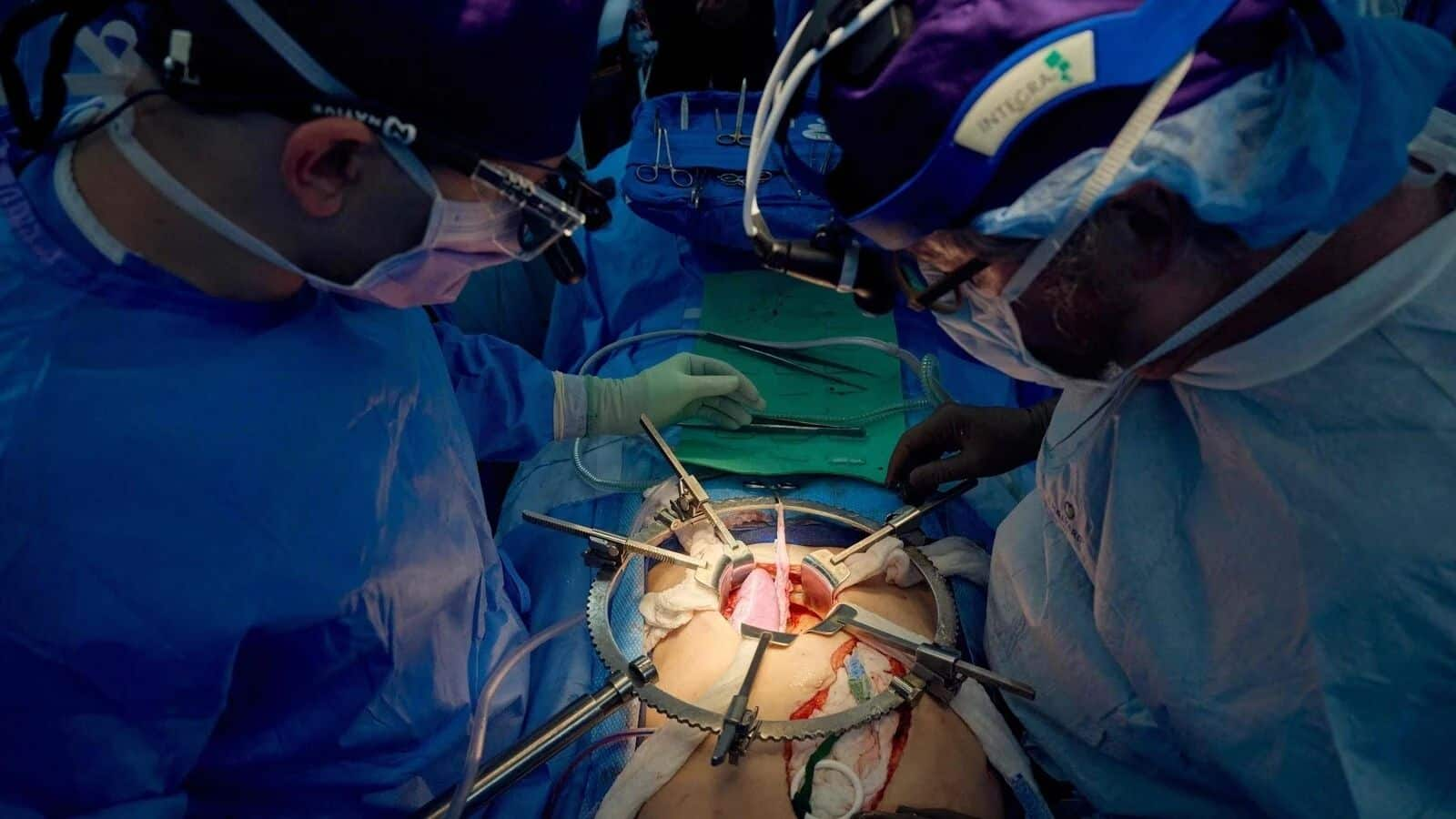
Pioneering transplant: Patient in recovery after receiving pig kidney
What's the story
In a remarkable achievement, a team of doctors at Massachusetts General Hospital, US has successfully implanted a genetically altered pig kidney into Rick Slayman, a 62-year-old man grappling with terminal kidney disease. The intricate four-hour operation was spearheaded by Dr. Tatsuo Kawai, the head of the Legorreta Center for Clinical Transplant Tolerance. Slayman's recovery is progressing well post-operation and he is anticipated to be released shortly.
Selection
Pig kidney transplant: An ideal match and instant functionality
Dr. Kawai, the surgeon behind the transplant, praised the pig organ as "the most beautiful kidney I have ever seen," highlighting its perfect match in size to a human kidney. As soon as the pig kidney's blood vessels were linked to Slayman's, it started functioning instantly, eliciting cheers from the 15-strong transplant team. This functionality of the transplanted organ signifies a notable accomplishment in medical research.
Why transplant?
Transitioning from human donor to genetically altered pig kidney
Slayman had been enrolled in the hospital's transplant program for over a decade. He was given a kidney from a human donor in 2018 after battling diabetes and hypertension for an extended period. Unfortunately, five years later, the donated kidney started failing, forcing him to return to dialysis in 2023 before receiving the pioneering pig kidney transplant.
Larger picture
The significance of genetic modification in organ transplants
The kidney used for this groundbreaking procedure was obtained from a pig that had been genetically altered by eGenesis Bio to improve compatibility with humans. Utilizing CRISPR-Cas9 technology, the firm made 69 exact alterations to the pig's DNA to prevent the human body from rejecting the organ. They also neutralized pig retroviruses that could potentially infect humans, further enhancing the safety of this pioneering transplant.
Hope
Xenotransplants: A potential answer to organ shortage
This transplant signifies the third time a pig organ has been implanted into a living human, following two heart transplants. Experts are of the opinion that xenotransplants - animal organ transplants into humans - could be instrumental in resolving the organ shortage crisis. As per data from the Organ Procurement and Transplantation Network, almost 89,000 individuals were on the kidney waitlist in 2023, while only about 27,000 kidneys were actually transplanted.
Possibility
A potential game-changer for patients
Dr. Winfred Williams, deputy head of the Department of Nephrology at Mass General, proposed that this could be a potential game-changer in addressing unequal access to kidney transplantation for ethnic minority patients. However, researchers at Mass General Brigham stressed that more research is required to fully comprehend how effective pig kidney transplants might be in the long run. This cautious optimism highlights the necessity for additional studies and trials in this revolutionary field of medicine.